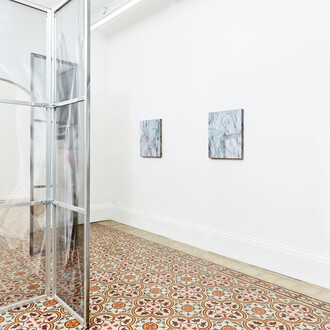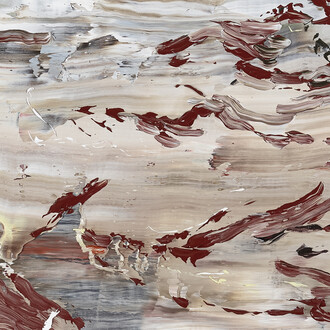The exhibition constitutes the fifth stage of the research path that Fondazione Brescia Musei has undertaken as part of the Brescia Peace Festival. Over the years, under the curatorship of Elettra Stamboulis, there have been solo exhibitions of Zehra Doğan (We will also have better days. Works from Turkish prisons, 2019), Badiucao (China is not near. Works by a dissident artist, 2021) and Victoria Lomasko (Victoria Lomasko. The last soviet artist, 2022), as well as the exhibition Until we are free (2023), a group show of works by Iranian artists Sonia Balassanian, Farideh Lashai, Shirin Neshat, Soudeh Davoud and Zoya Shokoohi, which was curated by Ilaria Bernardi.
The title of the exhibition echoes the title of the novel of the same name by the Sudanese writer Altayib Salih, whose narrative voice acts as the leitmotif of the exhibition project. For Sudanese literature, but African literature in general, this novel with its evocative title constitutes a pivotal novel for post-colonial culture.
The season of migration to the North retraces Albaih’s artistic career, presenting for the first time a critical solo exhibition of his decades-long work as a dissident and exiled artist. The installation, while taking up some works already realised in particular for the New York and Copenhagen exhibitions, dialogues with the city of Brescia and its peculiarities, consecrating from a museum point of view the artist, who is also directly involved from a curatorial point of view for some of his site-specific installations. The red thread of the reflection of Khalid Albaih, Icorn guest artist in Copenhagen (International Cities of Refuge Network) and fellow in the USA for the Artists at risk association (a branch of Pen international, the international institution that protects freedom of expression), is the investigation of the different facets that accompany the ‘season of migration to the North’: from the identification of a place as home to the confrontation with the foreigner, from the vision that the so-called West (a category that is no longer geographical, but ideological) has of Africa, to the marks that each journey imprints on the memory.












